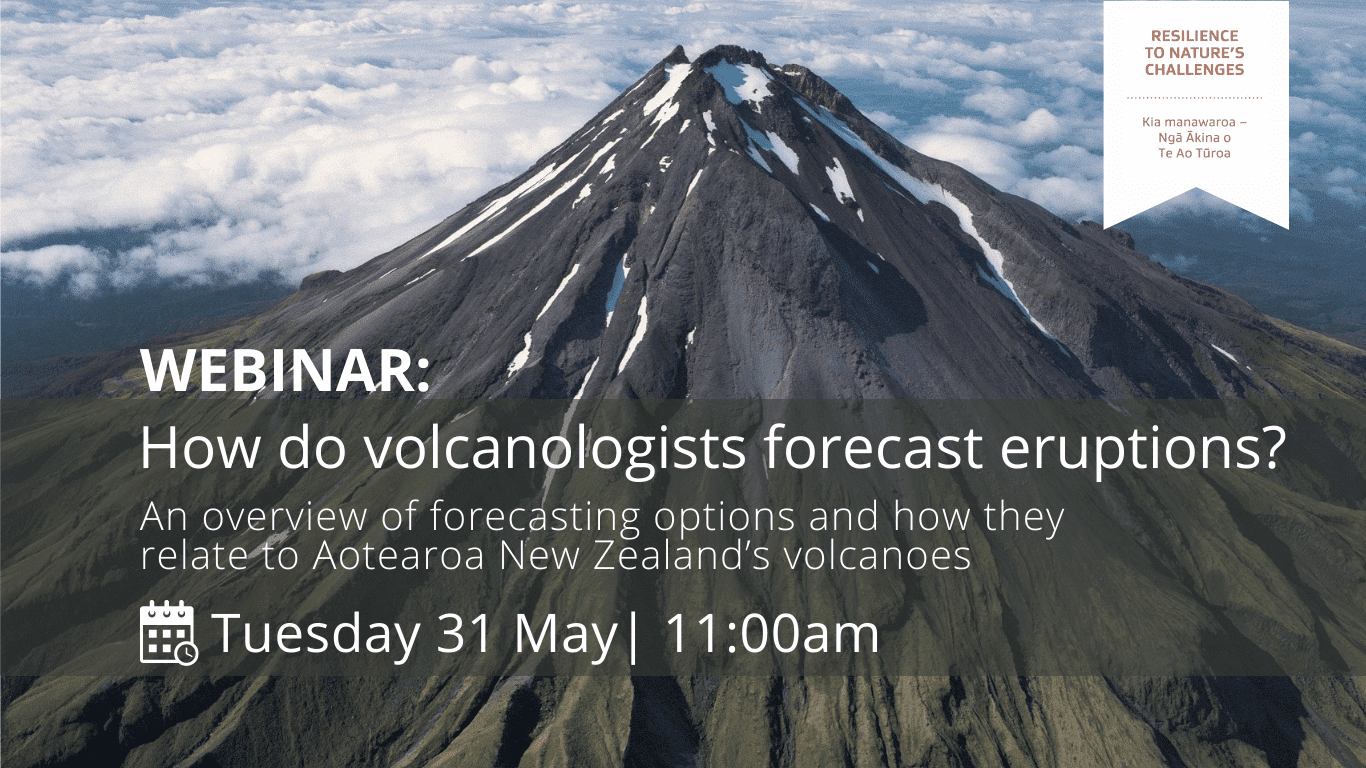An overview of forecasting options and how they relate to Aotearoa New Zealand’s volcanoes
During a volcanic crisis, agencies and the public want to know when and how an eruption might unfold. Eruption forecasts provided by volcanologists can inform decisions around evacuation timings and routes, state-of-emergency powers, and access for rescue and recovery teams.
Forecasts may be required for a range of parameters, including eruption onset time, size, style, eruptive vent location, eruption duration, and the extent of hazards such as lava, ash, lahars, and debris flows. These eruption forecasts are usually required under time-restricted and high stress conditions.
Many forecasting options exist but all have requirements and limitations. In this presentation, we will present the problem of eruption forecasting and discuss six types of forecasting methods.
We investigate which of the six methods may be feasible at the twelve volcanoes currently monitored by GeoNet, and invite discussions around the following themes:
- What forecasting parameters may be most valuable and in what situations – is eruption start time more useful than the explosivity of eruption?
- Warning time – is a forecast of an eruption in the next day more useful than a forecast of an eruption sometime in the next two weeks?
- Uncertainty – do we expect volcanic eruptions to be forecast to the same degree as weather? How comfortable are we with what degree of uncertainty around volcanic eruptions?
The webinar will be recorded and made available following the event.
Tuesday 31 May, 11am
Speakers:
Melody Whitehead is a Postdoctoral Fellow at Massey University. Her focus is on how to quantify and reduce the inherent uncertainties within geoscientific problems. Mel’s research includes probabilistic modelling of natural hazards, sensitivity analyses around model boundaries and parameter selection, and modelling expert interpretation of geological data within a Bayesian brain. Current work revolves around volcanism, multi-hazards, and expert cognitive bias. Mel has a PhD in geology from The University of Auckland, and Masters’ degrees in engineering and natural hazards from the University of Bristol. Prior to her current position, Mel was a Postdoctoral Fellow in the Geophysics Department at the University of Edinburgh.

Jon Procter (Muaupoko, Ngati Apa, Ngāi Tahu) is a Professor of Natural Hazards at Massey University and co-leader of the Resilience Challenge Volcanoes programme. He has contributed to developing research that focuses on volcanic hazard simulation and working with communities to increase resilience to natural and environmental hazards. Jonathan manages the Volcanic Risk Solutions research group and has contributed nationally to developing new research directions in volcanology. Being one of only a handful of Māori professorial scientists, Jonathan feels he has a duty to contribute to Māori development. His greatest contribution in this respect has been the development of a new area of research on mātauranga Māori, volcanic hazards and building resilience in Māori communities.

Mark Bebbington is Professor in Geostatistics at Massey University and co-leader of the Resilience Challenge Multihazard Risk programme. His research interests include stochastic modelling, especially in geophysics, inference and computational methods for stochastic processes, and reliability and statistical quality control. Mark has published over 100 international journal papers and received over 20 contestable research grants, focusing on developing methods for assessing and forecasting natural hazard risks, especially volcanic and earthquake hazards. He is an associate editor for the journals: Frontiers in Earth Science Geohazards and Georisks; Statistics in Volcanology; and The Australian & New Zealand Journal of Statistics.
